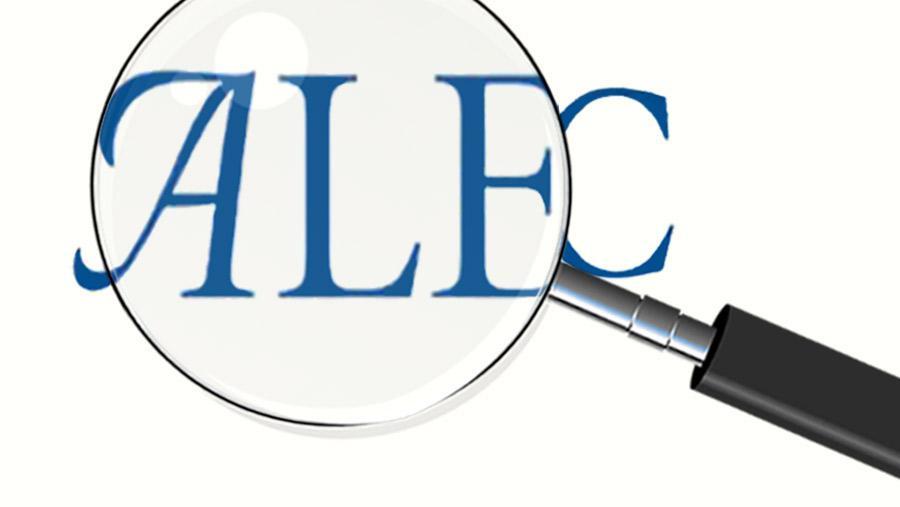Submitted by Don Wiener on

More than one-third of the large corporate members of the American Legislative Exchange Council (ALEC), and half of all pharmaceutical company members had mass layoffs in 2017.
Through the corporate-funded ALEC, global corporations and state politicians vote behind closed doors to try to rewrite state laws that protect workers, consumers, and the environment.
ALEC companies may want to spend less time trying to dismantle regulations, and more time running their business.
Mass layoffs are defined by the federal WARN ACT, and do not include all layoffs, such as layoffs but re-hiring within six months, or companies smaller than 100 employees.
Industry groups represented by ALEC members, such as telecommunications and railroads, had large layoffs in 2017, but pharmaceutical company employees were especially hard hit.
Pharmaceutical companies, as well as their trade association, are active in ALEC as they seek to limit product liability for their negligence in selling unsafe drugs. Even as they were laying off employees the four pharma companies below spent $20 million on federal lobbying.
ALEC corporate member Eli Lilly had among the ten total biggest retail layoffs of 2017, shedding 3,500 employees globally and 2,000 in the United States. In 2017, Lilly announced it was reducing its employment by 8.5 percent. Eli Lilly was a "Director" level sponsor of the ALEC Annual Conference in 2017.
Novartis announced it was laying off 250 workers. Novartis representative Don Stetcher was given ALEC's 2011 Private Sector Member of the Year Award.
Ariad Pharmaceuticals announced 180 layoffs after its acquisition by Takeda Pharmaceutical. John Schlatter, Government Affairs Manager at Takeda, represented Takeda as the state corporate co-chair of Alaska and Washington.
As often happens when there is news of an acquisition of a smaller company by an industry leader, Ariad's stock jumped 70 percent on merger news, but once the deal was completed the new combined company, ALEC member Takeda, announced that 180 people were "redundant."
TEVA Pharmaceuticals simultaneously announced bad earnings and layoffs in 2017, saying that 5,000 to 7,000 of its global workforce would be cut, and 280 jobs in California and New York were lost between 2016-2017, as TEVA prepared for bad first quarter earnings.
Non-pharma members of ALEC that also had big layoffs in 2017 are AT&T with 630 jobs lost and Verizon laying off 1,200 workers, then another 2,100 after its merger with AOL. Comcast laid off 720 workers.
Honeywell, Conoco, UPS, Altria, Anheuser-Busch, CSX, Micron and Norfolk Southern, all ALEC corporate members, combined to lay off over 3,000 workers.
Even the Kochs, the two brothers with a combined wealth of over $90 billion, laid off 136 workers at its St. Paul Minnesota Molex facility, Molex Copper being a subsidiary of Koch Industries. Then this week they announced layoffs at a Georgia-Pacific facility in Camas, WA, where up to 300 workers have been told they will be let go at the beginning of the year.
If ALEC sponsors did not spend tens of millions of dollars on federal and state lobbying, and political campaigns, some of these jobs could have been saved.
Note: Layoff data, where not otherwise given, come from "Plant Shut-Downs, Closings and Layoffs" a subscription publication that uses the Federal Warn data and identifies national, regional, and local businesses and plants in transition through layoffs, closings, and work force reductions.

